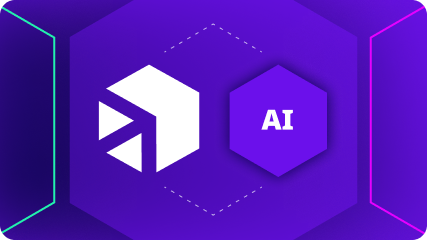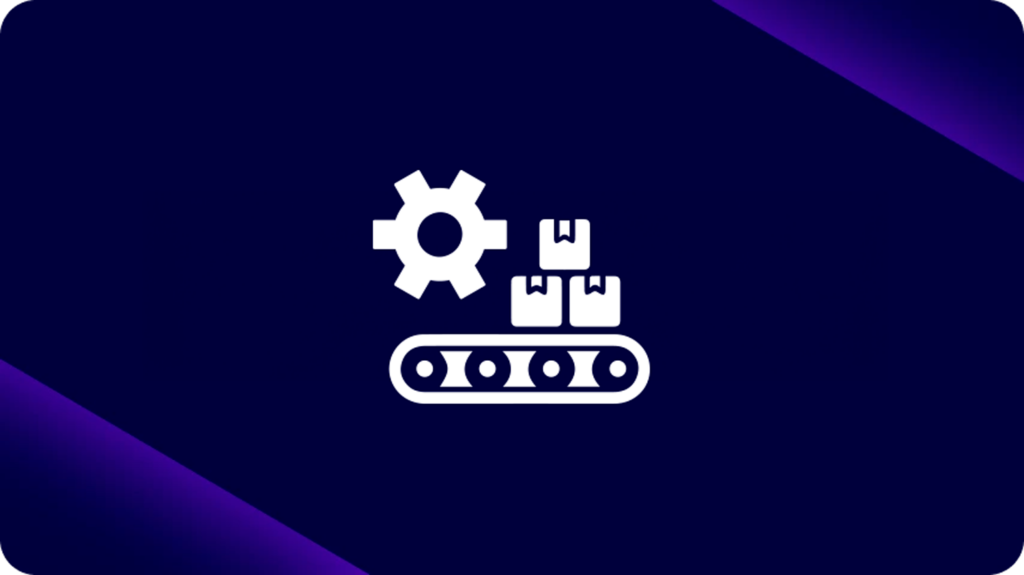October 24, 2022
Sua organização provavelmente usa vários sistemas todos os dias para realizar as tarefas diárias. Sua empresa e toda a cadeia de suprimentos podem utilizar diferentes sistemas de gestão de relacionamento com o cliente (CRM) e sistemas de gestão de recursos empresariais (ERP) para gerenciar as atividades diárias.
Diversos departamentos podem alternar entre softwares de gerenciamento de projetos e de produção, sistemas de logística e plataformas de ecommerce, além de diferentes sistemas de software como serviço (SaaS) para clientes ou fornecedores diversos.
De vendas e marketing a logística de bastidores e gestão de ativos e produtos, os silos organizacionais carecem de visibilidade, tornando impossível tomar decisões bem-informadas para o seu negócio.
A complexidade de reunir dados e insights de várias fontes pode ser um desafio, especialmente quando as siglas sozinhas já são o suficiente para confundir. Como CEO, você precisa de clareza, visão e transparência em toda a sua organização para entender o estado do seu negócio a qualquer momento.
Quanto tempo você economizaria e quão mais fácil seria o seu trabalho se todos esses sistemas fossem integrados? Assim, você teria todos os seus programas e dados associados disponíveis de forma instantânea, sem silos organizacionais ou a necessidade de alternar entre sistemas. Uma plataforma de integração como serviço (iPaaS) pode fazer isso acontecer.
>> Agende uma demonstração personalizada com nossa equipe de especialistas e veja como o iPaaS da Digibee trará eficiência ao seu negócio.

O que é um iPaaS?
Uma solução iPaaS é um serviço escalável baseado em assinatura que preenche a lacuna entre os sistemas atuais da sua empresa e as novas tecnologias, conectando dados e plataformas que nunca foram conectados antes, independentemente dos silos ou da infraestrutura legada.
Recentes Gartner mostram que as soluções iPaaS para empresas tiveram um crescimento de 38% em 2020, atingindo US$ 3.5 bilhões, tornando-se o maior mercado de integração independente.
O que isso significa para os líderes empresariais
Para CEOs e outros líderes empresariais, adotar uma solução iPaaS significa não precisar mais fazer login em diferentes plataformas para reunir dados e insights de toda a organização. Significa não acessar mais plataformas de ecommerce e sistemas CRM separadamente, ou tentar decifrar análises e obter insights de dados dispersos.
Significa ter a capacidade de conectar todos os seus sistemas ERP e CRM de ponta a ponta e seus softwares em uma única plataforma, eliminando silos e integrando programas e dados em toda a empresa. Imagine ser capaz de acessar todas as informações necessárias para obter uma visão geral da organização em tempo real – tudo em um só lugar. Isso é possível, e pode acontecer em apenas algumas semanas.Sério.
Como a integração afeta as funções de negócios?
Uma solução iPaaS integra dados de múltiplas fontes, incluindo CRM, ERP, comércio eletrônico e integração de automação.
Vamos detalhar como cada um desses sistemas atende aos negócios e por que é importante integrá-los.
Integração de CRM
- Sistemas de gerenciamento de relacionamento com o cliente (CRM) são essenciais para armazenar dados importantes de clientes e prospects e para rastrear as interações com os clientes. Seja seu CRM integrado operacional, analítico ou colaborativo, as integrações de CRM podem fornecer uma visão completa de seus clientes em tempo real e indicar como eles se relacionam e interagem com seus esforços de vendas, marketing e atendimento ao cliente.
Integração ERP
- O gerenciamento de recursos empresariais (ERP) é um software utilizado para gerenciar as atividades do dia a dia, incluindo gestão de produtos, ativos e projetos. A integração do sistema ERP é vital para manter tudo no caminho certo, especialmente quando vários clientes ou fornecedores estão envolvidos.
Integração de e-commerce
- É fundamental para as organizações terem integração de ecommerce para transferência de dados em tempo real, precisa e sem interrupções entre suas plataformas de ecommerce e áreas chave do negócio, como marketing, vendas, inventário, contabilidade e sistemas CRM.
integração de automação
- A integração de automação inteligente pode ajudar com iniciativas de inteligência artificial (IA) e aliviar tarefas tediosas, como a coleta de insights e análises de várias fontes. Em uma pesquisa recente da Deloitte com executivos, 73% dos entrevistados afirmam que suas organizações iniciaram um caminho rumo à automação inteligente (interessantemente, esse número aumentou 58% em relação à pesquisa da Deloitte realizada antes da pandemia).
Se a integração empresarial é tão importante, então por que nem todos estão fazendo isso?
A maioria dos líderes empresariais entende a importância da integração empresarial. O recente State of Enterprise Integration Report da Digibee mostra que a maioria dos entrevistados acredita que isso é uma prioridade, mas poucos tomaram medidas para realmente implementá-la
93%
dizem que a integração empresarial é vital para seus negócios ou é bom ter
7%
implementaram com sucesso uma estratégia de integração empresarial
94%
daqueles que não implementaram sequer têm uma solução em mente
A integração empresarial é crucial, mas é evidente que a maioria das empresas não tem uma estratégia definida. Por quê? Pode ser porque os tomadores de decisão não estão cientes dos componentes de uma estratégia de integração eficaz.
Esses componentes incluem:
- Definir os objetivos do seu projeto
- Garantir o alinhamento com sua equipe
- Escolher a tecnologia certa
A colaboração é a chave para uma integração empresarial bem-sucedida
A colaboração é fundamental para uma integração empresarial bem-sucedida. Executivos C-level devem trabalhar em conjunto, juntamente com suas equipes e outros stakeholders na organização, para garantir o desenvolvimento de uma estratégia de integração eficaz. As empresas só conseguem selecione a solução de integração certa através da colaboração e compreensão das necessidades interfuncionais em toda a empresa.
Está na hora de parar de usar tantos sistemas diferentes e modernizar sua organização com integração empresarial. Não procrastine. Integre, automatize e inove seus negócios com uma estratégia eficaz de iPaaS.
A State of Enterprise Integration da Digibee oferece informações exclusivas baseadas em dados sobre as últimas tendências em integração empresarial, bem como uma visão das melhores práticas atuais e mudanças esperadas no futuro.
Saiba mais sobre a abordagem inovadora da Digibee para integração. Baixe sua cópia gratuita do relatório hoje mesmo. Ou, se preferir, Baixe sua cópia gratuita do relatório hoje. Ou, se preferir, entre em contato com nossos especialistas diretamente para mais informações.
Seus dados, totalmente integrados, em menos de três semanas. Deixe a Digibee mostrar como.








